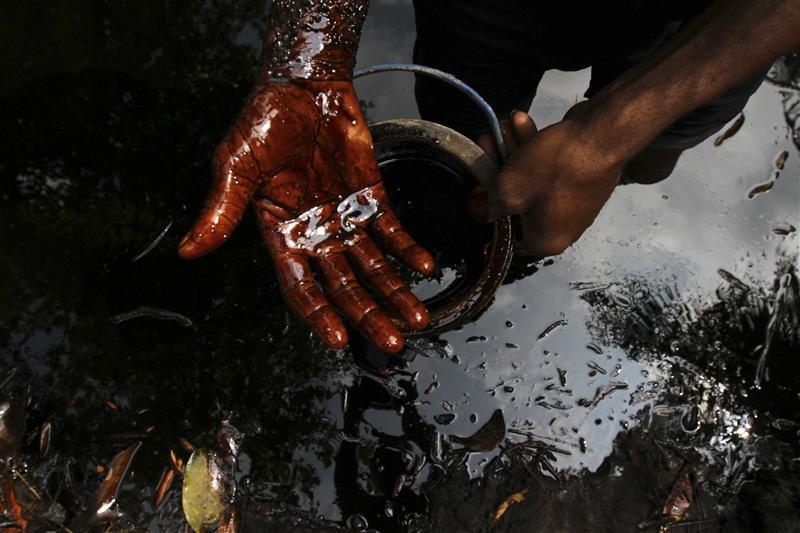Sep. 8 (GIN) – Angola’s crude oil is proving sweet to U.S. buyers who are snapping it up as fast as they are dropping purchases from Nigeria, according to data released by the U.S. Energy Information Administration (EIA).
Breaking a 40 year record, crude oil exports from Angola to the U.S. are averaging around 116,000 barrels per day (bpd) since the start of 2014, while imports from Nigeria are looking at 75,000 bpd.
“Right now, the US is no more importing from us because of shale oil that they have. Now we are looking to India and to others where our crude may not have a premium market,” Mike Olorunfemi, former executive of Nigeria’s national oil cartel told BusinessDay.
But the news is hardly comforting to Nigeria’s environmental activists. Pools of spilled oil in the oil-rich Ogoniland still scar the landscape. A report by the United Nations Environmental Program confirmed that Ogoniland was a ticking ecological bomb.
“After three years a situation that required the declaration of environmental emergency has yet to elicit any serious response,” declared Nnimmo Bassey, director of Health of Mother Earth Foundation in Nigeria.
“We are deeply shocked that we are marking three years of inaction on a report that clearly showed our peoples are walking and living in the valley of the shadow of death. We are scandalized that we are not marking three years of concrete actions to salvage what is left of the Ogoni environment,” he said.
“There are no tenable reasons for government and Shell to fold their arms and watch our people wallow in a chronically polluted environment all through their lives. Why should anyone have to drink water containing benzene, a known carcinogen, at levels over 900 times above the World Health Organisation guideline and 1000 times above Nigerian drinking water standards?” Bassey asked.
This month, the call to “Leave the Oil in the Soil” will be widely heard as thousands of people take to the streets of New York, London and eight other cities worldwide to pressure world leaders to take action on global warming. Organizers predict it will be the biggest climate march in history.
The march and rally precedes a U.N. summit on climate change organized by the U.N. Secretary General Ban Ki-moon, the first time world leaders have come together on the issue since the landmark Copenhagen summit in 2009.
Ricken Patel, executive director of digital campaign group Avaaz, said the demonstration on Sept. 21 was intended to send a signal to the world’s leaders.
“Now is the time, here is the place, let’s come together, to show politicians the political power that is out there on there.
On the web site: http://peoplesclimate.org/march/ , organizers explain: “With our future on the line and the whole world watching, we’ll take to the streets to demand a world with an economy that works for people and the planet; a world safe from the ravages of climate change; a world with good jobs, clean air and water, and healthy communities.”








